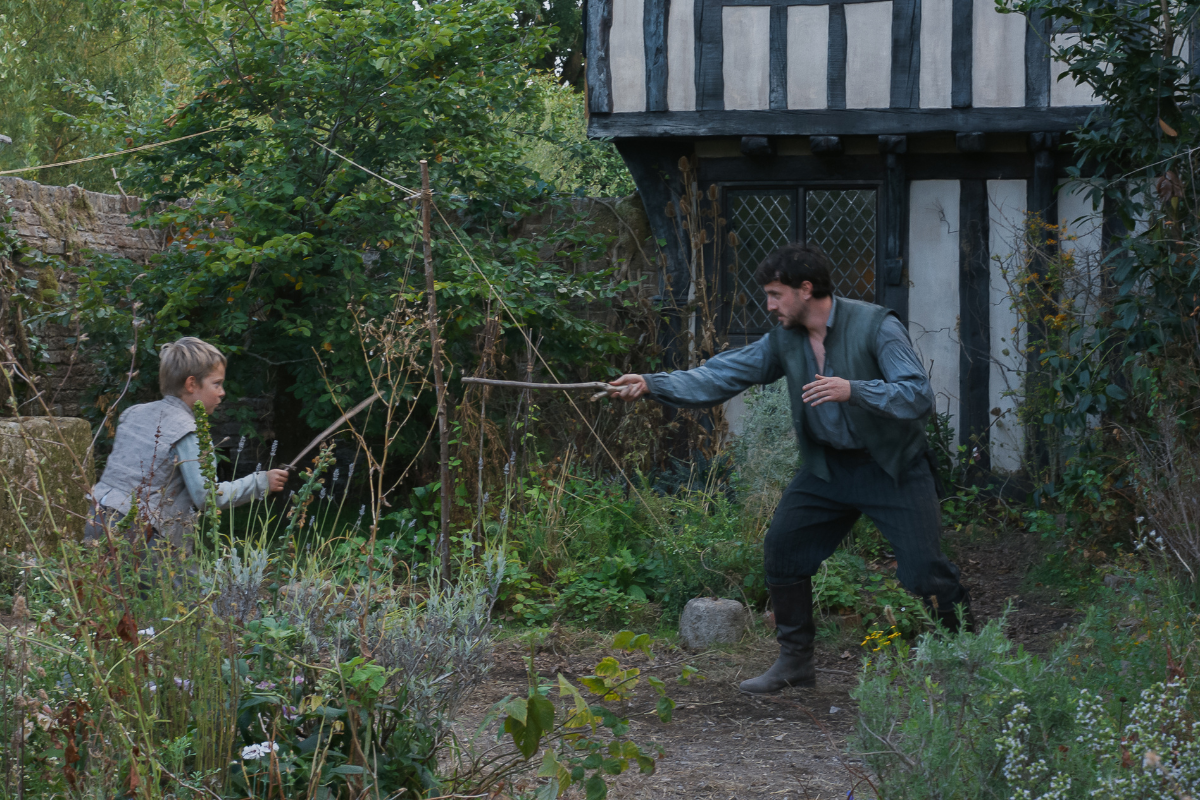SPECS & THE CITY: Deus Ex Machina and ‘Lord of the Rings’
Brad Johnson discusses how Deus Ex Machina can impact your script using ‘Lord of the Rings’ as an example.
Brad Johnson is a screenwriter promoting the mantra "Read scripts, watch movies, and write pages." Brad also works as a script consultant for writers of all levels to develop and grow their screenwriting toolbox. Follow Brad on Twitter @RWWFilm.
As screenwriters, we tend to be more than a bit sadistic when it comes to our characters. While the journey they embark on is at the heart of the story, it’s the obstacles we put in their way that make that story captivating to an audience. No one wants to spend two hours watching someone embark on a journey, have everything go according to plan, and then complete their goal with ease. No, as Nabokov famously said, “The writer’s job is to get the main character up a tree, and then once they are up there, throw rocks at them.”
And that’s exactly what we do – throwing our creations into the maelstrom; pushing them to their mental, physical, and spiritual limits all in the name of entertainment. If we’ve done our job right, our characters end up in such dire straits that the audience can’t possibly fathom how they’re going to succeed in their quest. But of course they do; when done right that cathartic moment where the suspense is lifted and the audience is shown the “out” is a magical moment. It’s where the magic happens – and a room full of strangers find themselves feeling real emotions for a bunch of made up people.
Sometimes, however, a writer will push their characters too far. They’ve done such a good job of painting the protagonist into a corner, that there is no real way out. And that’s where Deus Ex Machina will often come into play.
Literally meaning ‘God from the Machine,’ in the film world Deus Ex Machina refers to something – a person, an item, some natural force, anything really – which shows up at the end of the film, out of nowhere, and saves the day. Normally, to be a true Deus Ex Machina, this savior should have never been mentioned in the film (which is why I fall into the camp that does NOT believe the Ark of the Covenant is a Deus Ex Machina in Raiders of the Lost Ark).
To illustrate exactly how jarring a true Deus Ex Machina can be, let’s take a look at one of the biggest film franchises ever.
Deus Ex Machina and Lord of the Rings
When we talk about Deus Ex Machina and how it functions in Middle Earth, anyone with a cursory knowledge of the films should immediately know what we’re going to talk about…that’s right – Giant Eagles. They were a favorite method used by Tolkien to extract his characters from their more dire of straits. Just take a quick look…
- Rescuing Bilbo, Thorin and the rest of the traveling company in The Hobbit from the Azog the pale orc;
- Gandalf’s harrowing escape from Saruman’s tower in The Fellowship of the Ring; and
- Sam and Frodo’s rescue from Mount Doom after finally destroying the One Ring in The Return of the King.
It’s this third one that I want to focus on in here, as it occurs as part of the climax of the larger Lord of the Rings storyline. Frodo and Sam have just fought off Gollum and destroyed the One Ring, defeating Sauron and saving all of Middle Earth. But as a result, they find themselves wounded, abandoned, and trapped inside the active volcano which is Mount Doom. There’s no one that knows where to find them or has any way of reaching them. Frodo’s vision starts to waver. His eyes close. This is the end.
Except it’s not, because, Giant Eagles.
That’s right. Just as the pair of heroes is about to meet their end, Gandalf swoops in with a group of Giant Eagles to snatch up the pair of hobbits and take them to safety in Rivendell. While Gandalf having access to his bird army was previously established, as I mentioned above, this instance still counts as a true Deus Ex Machina because there is no mention of them in this context anywhere prior to this scene. The audience doesn’t know that Gandalf knows where Frodo and Sam are, that he has called on the eagles (or even that he has a plan at all to try and save them), or that he has left to make an attempt. He is suddenly just THERE, and it takes the audience out of the scene emotionally.
So, when you’re writing your next script, or diving back for that next round of rewrites, take a strong look at your story’s ending. Is the resolution earned? Do your characters get themselves out of the peril they find themselves in, or have you orchestrated it to happen because you NEED it to happen? If that’s the case, then it’s time to stretch those writing muscles and work out how to solve the problems you created for your characters without resorting to Deus Ex Machina.
Brad Johnson is a screenwriter and producer who has placed in multiple competitions including Final Draft Big Break and the Walt Disney Television Writing Program. He has served as a judge for the Nashville Film Festival and the NYC Midnight Short Screenplay Challenge, and worked as a script consultant through his website, ReadWatchWrite.com. You can follow Brad on Twitter @RWWFilm.







